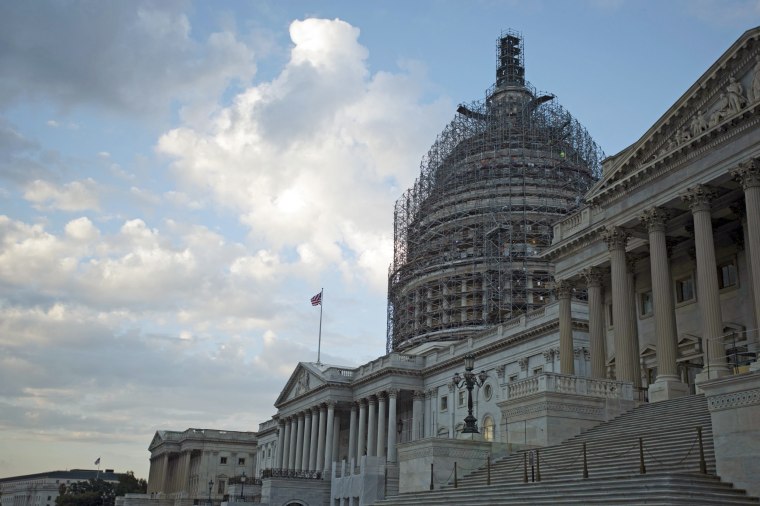There’s no gridlock in Washington over the appropriateness of the word “oriental.”
On Monday, the Senate unanimously passed a bill that would remove the word from the last known laws in the United States Code where it applies to a person. In February, the House passed the original measure unopposed. Now the bill is on its way to President Obama for final approval.
“The term ‘Oriental’ is an insulting and outdated word and the Senate’s passage of my bill will soon force the U.S. government to finally stop using it,” Rep. Grace Meng (D-NY) said in a statement. Meng authored the original bill, H.R. 4238, which was sponsored in the Senate by Sen. Mazie Hirono (D-HI).
“I thank my colleagues in the House and Senate for recognizing the need to pass this long overdue legislation,” Meng added. “Our government should not refer to any ethnicity in a derogatory manner, and very shortly this offensive and antiquated term will be gone for good.”
RELATED: U.S. House Votes to Remove the Word 'Oriental' from Federal Law
The legislation changes two laws in Title 42 of the U.S. Code, striking all references of “a Negro, Puerto Rican, American Indian, Eskimo, Oriental, or Aleut or is a Spanish speaking individual of Spanish descent,” inserting instead “an Asian American, Native Hawaiian, a Pacific Islander, African American, Hispanic, Puerto Rican, Native American, or an Alaska Native.”
The new legislation sends a message that “oriental” is hardly a harmless inoffensive word, according to Erika Lee, director of the Immigration History Research Center at the University of Minnesota, and the author of, “The Making of Asian America: A History.”
“It's origins are in the era of European colonization when the terms "Orient" and "Oriental" were used to describe Asia and Asian peoples as backward, inferior, exotic, and foreign in order to justify colonization and subjugation,” Lee told NBC News. “In the U.S., the term "Oriental" has been used to reinforce the idea that Asians were/are forever foreign and could never become American. These ideas helped to justify immigration exclusion, racial discrimination and violence, political disfranchisement, and segregation.”
Lee said continued use of the term only “perpetuates inequality, disrespect, discrimination, and stereotypes towards Asian Americans, a group that remains largely underrepresented in American politics despite their status as the fastest growing group in the U.S.”
Community activists expressed approval at the passing of the bill.
“We are very pleased that the full Congress approved the removal of the derogatory term ‘oriental,’ as well as other outdated terms, from federal legislation once and for all,” Christopher Kang, national director of the National Council of Asian Pacific Americans, said in a statement. “These terms bring to mind dark times in American history, including the Chinese Exclusion Act of 1882 and the incarceration of Japanese Americans in World War II. We thank Representatives Meng and Royce and Senator Hirono for their leadership on this issue and the entire Congressional Asian Pacific American Caucus for its support. We look forward to the President signing this bill into law so that the government’s language is respectful and accurate”
Follow NBC Asian America on Facebook, Twitter, Instagram, and Tumblr.
